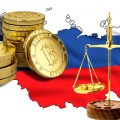Cryptocurrency regulation — no longer a priority for lawmakers, PM saysDmitry Medvedev. A few weeks later, the Russian central bank added that although cryptocurrencies do not threaten the country's monetary system, the regulator opposes their legalization.
When the country lacks regulation, and inthe world as a whole there is a problem of clear legislation governing digital assets, start-ups working in the new industry are faced with the task of attracting funding to blockchain projects that would best meet the requirements of world regulators. The solution may be an initial exchange offer (IEO), which replaced the ICO, which did not meet the expectations of either projects or investors due to the abundance of fraudsters and legal difficulties.
What is IEO?
IEO (Initial Exchange Offering) is conductedcrypto exchanges on behalf of projects on special platforms managed by exchanges. During the ICO, token issuers themselves were involved in the entire process of attracting financing.
"IEO — this is a form of attracting investment inthe form of implementation on the basis of a crypto exchange of a fixed number of tokens issued through a one-time or accelerated issue,” — explains Nikita Kulikov, founder of the ANO PravoRobotov. According to him, IEO has similar features to crowdfunding, but is more similar to futures trading, which over time became a commodity, regardless of the relative commodity they were issued.
The main advantage of IEO in the eyes of investorslies in the fact that the crypto exchange carries out primary filtering of projects and selects those that meet its requirements, eliminating fraudulent, suspicious and unpromising ones. If during the ICO investors sent their tokens to the addresses of the projects themselves, expecting — sometimes in vain — to receive tokens of the future platform, then during the IEO the projects first transfer the tokens to the exchange, which sells them to investors at a certain price. On the one hand, there is some centralization of the blockchain space. On the other hand, it is this form that has attracted investors who want to secure their investments in crypto assets.
The first high-profile IEO was a token saleBitTorrent on the Binance Launchpad platform in January 2019. The token sale ended in 15 minutes, and the first $6 million was raised in a record 22 seconds. Following the success of the first IEO, other crypto exchanges also began to launch their platforms for conducting exchange offerings — Bittrex IEO, Huobi Prime, OK Jumpstart, Coineal Launchpad and KuCoin Spotlight.
Why IEO startups?
In addition to solving the most urgent task ofraising funds, IEO has a number of related advantages that will make the work of startups developing blockchain solutions more stable and long-term. One of the problems is the refusal of banks to open a current account for projects working with blockchain and digital assets. Financial institutions fear that projects will not be able to comply with anti-money laundering or counter-terrorism financing regulations.
«Since the exchange will undertake verificationusers (AML/KYC), this will increase the startup’s chances of opening a fiat bank account», — notes tax specialist and partner of the Taxology law firm Mikhail Uspensky.
The second problem that is often encounteredprojects attracting funding — this is to ensure the liquidity of their tokens. In the case of an IEO, crypto exchanges on whose platform the initial sale of tokens took place usually list these tokens.
“Insufficient liquidity is a biga problem for projects that are just starting to trade. The lack of liquidity leads to low convertibility of the project’s tokens, and this immediately turns away from them those users who are not ready to take such a risk and buy assets from which they cannot quickly exit,” explains Evgeniy Egorov, head of the Russian representative office of the global crypto exchange Coineal.
How to conduct IEO?
Although IEO, on the one hand, greatly simplifiesthe task of startups to attract financing, a number of other issues arise that need to be solved in order to be among those lucky ones who turned out to be large crypto exchanges for IEO on their sites. At stake is the reputation of the exchange, which promises to carefully select the projects offered to investors on its platform, so startups will have to carefully prepare and think through all the legal aspects related to the work of the project.
First, the cornerstone never goes away.world crypto regulators – security vs utility. Projects should choose what purpose their tokens will serve, keeping in mind that if the tokens have the characteristics of securities, then they will have to comply not only with the rules of their jurisdiction, but also with the rules of the country of which their investor is a citizen. “We have to be realistic – it’s very difficult. Registration of security tokens, for example, with the Swiss regulator will require at least six months and several hundred thousand francs. This is long enough, complicated and expensive that it is easier to abandon the issuance of security tokens in favor of the utility model,” — notes Uspensky. According to him, registering utility tokens with most financial regulators will require significantly less effort, investment and time - up to six months. At the same time, he admits that whatever the token is - security or utility - there are risks regarding the position of the American financial authorities, who suspect each utility token that it is actually a security, and therefore must comply with the requirements of the legislation on US securities.
Secondly, large cryptocurrency exchanges managingplatforms for IEO, require projects to prepare a full package of accompanying legal documents - a conclusion that describes the jurisdiction of the token issuing company, the tax system, risk assessment of the project’s business model, token issuing prospectus, user agreement, privacy policy.
Regulatory Ambivalence
The fundamental problem in the IEO space islack of clear legislative regulation both within one country and at the international level. The industry is developing faster than the clumsy bureaucracy.
In many jurisdictions, regulators have voiced theirposition: it is necessary to regulate in order to prevent abuse, but how exactly and how to set boundaries in a world where there are no usual boundaries, — they themselves do not understand. The very fact of issuing, acquiring, or selling a digital asset is not as interesting for most regulators as the fact that fiat money arises as a result of these actions, for example, after the resale of tokens, explains Kulikov.
«The jurisdiction of the exchange is not of particular importanceplays as well as the place of registration or registration of the seller and investor, but only as long as these digital assets remain digital and are not converted into currency», — he adds.
Over time, the regulatory situation,Undoubtedly, it will change: the more token trading resembles classic exchange trading, the more likely it will be licensed like other financial services. But until this happens, projects that are planning IEO should carefully evaluate all the advantages and risks associated with attracting funding on cryptocurrency exchanges.
Posted by: futuretime





